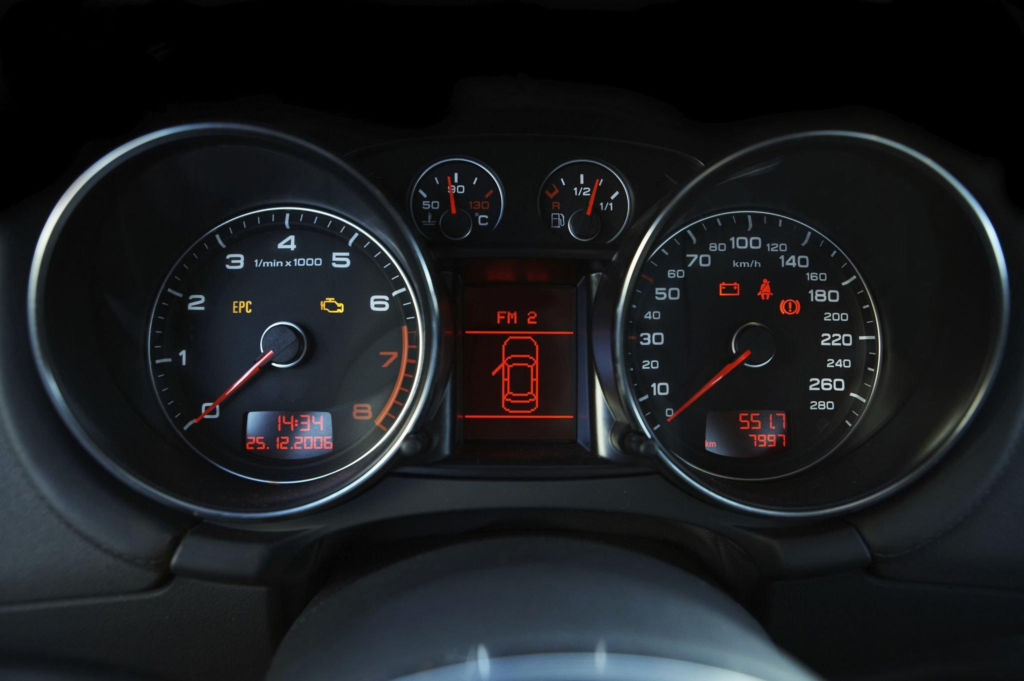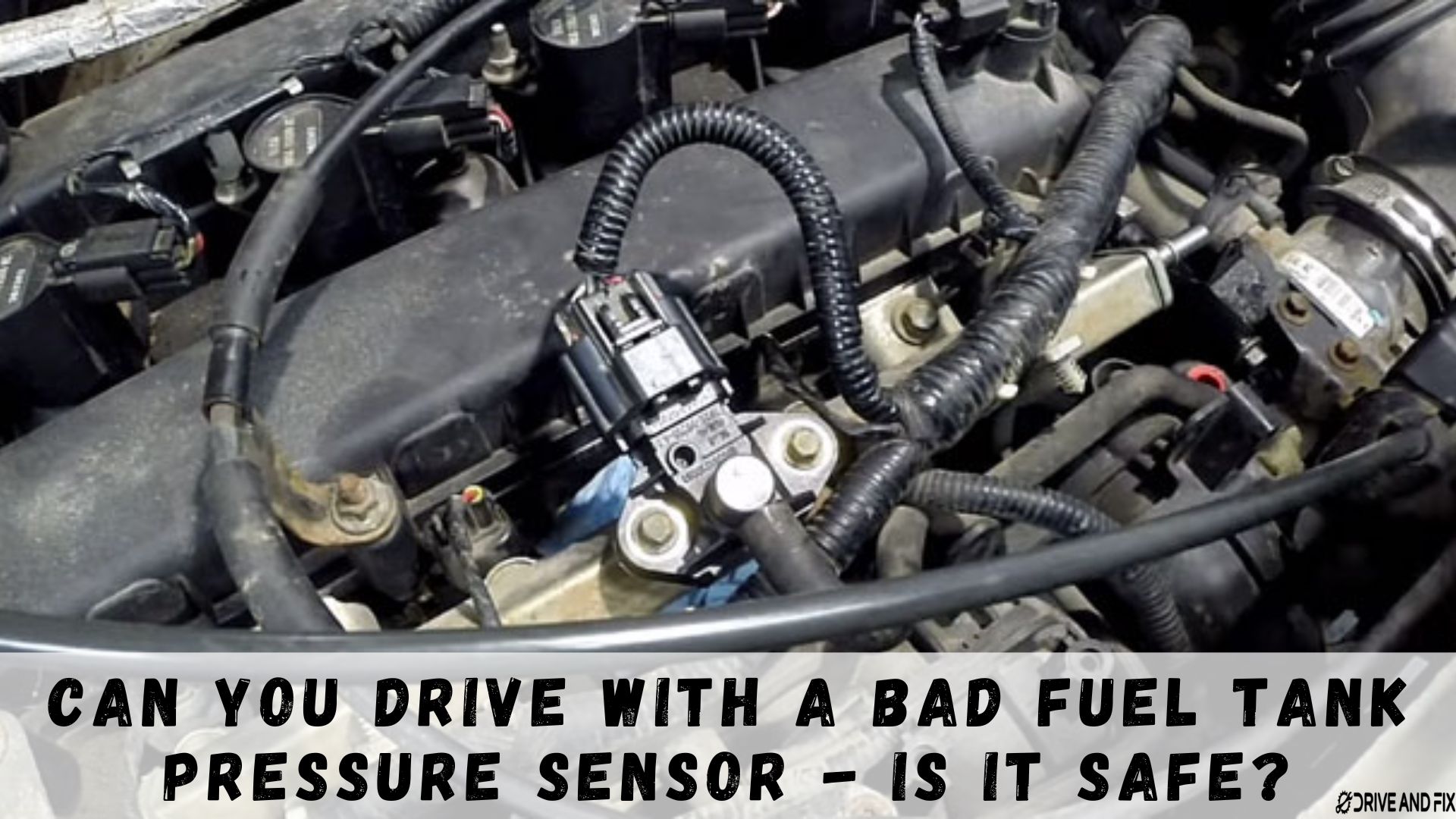It’s common for drivers to face problems with the fuel tank pressure sensor, which is responsible for monitoring the pressure inside the fuel tank and adjusting the fuel mixture accordingly. But like any other car component, the fuel tank pressure sensor can sometimes malfunction, leading to questions can you drive with a bad fuel tank pressure sensor.
Let’s explore the risks related to driving a car with a bad fuel tank pressure sensor, signs of a malfunctioning sensor, and what to do if you suspect your car sensor is not functioning correctly.
What Is Fuel Tank Pressure Sensor And How A Works
It is a component in your car fuel system, responsible for measuring and regulating the fuel pressure flow from the tank to the engine.
The fuel tank pressure sensor is typically located in the fuel pump module or the fuel tank. It works by monitoring the pressure inside the fuel tank and sending the information to the engine control module (ECM) or powertrain control module (PCM). The ECM or PCM then uses this data to determine the appropriate fuel-to-air ratio for optimal engine performance.
The sensor uses a diaphragm mechanism that responds to changes in fuel tank pressure. As the fuel tank pressure changes due to factors like fuel consumption or atmospheric pressure, the diaphragm in the sensor moves in response. This movement creates an electrical signal that is transmitted to the ECM or PCM, which uses this information to adjust the fuel pressure and flow as needed.
Functions Of A Fuel Tank Pressure Sensor

The primary function of the fuel pressure sensor is to measure the pressure inside the fuel tank and provide this information to the engine control module (ECM). This information helps to control the fuel system operation, ensuring the engine runs smoothly and efficiently. Some other functions of a fuel pressure sensor include:
- Controlling fuel system operation: The ECM uses the fuel pressure sensor to control the fuel system operation. Based on the information provided by the sensor, the ECM can adjust the fuel pressure and regulate the fuel flow to the engine.
- Preventing engine damage: If the fuel pressure is higher or lower, it can cause engine damage, such as engine knock or damage to the fuel injectors. The fuel pressure sensor helps to ensure that the fuel pressure remains within the appropriate range to prevent engine damage.
- Improving fuel efficiency: By accurately measuring the pressure inside the fuel tank and regulating the fuel flow to the engine, the fuel pressure sensor can help improve fuel efficiency. This can result in better gas mileage and lower fuel costs over time.
- Monitoring emissions: If the fuel pressure is too high or too low, it can cause the vehicle to emit more pollutants into the air. The fuel pressure sensor helps reduce emissions and improve air quality by regulating the fuel pressure.
Can You Drive With A Bad Fuel Tank Pressure Sensor?
How To Detect A Faulty Fuel Tank Pressure Sensor

The most common ways to detect a faulty fuel tank pressure sensor are:
- Check engine light
If the fuel tank pressure sensor is not functioning correctly, it can trigger the check engine light to come on. The sensor sends information to the engine control module (ECM) or powertrain control module (PCM) about the fuel pressure and flows to the engine.
- Hard starting or no start condition:
The sensor may not provide accurate information to the engine control module, preventing the engine from starting.
- Rough idle:
The sensor regulates the fuel pressure and flows to the engine. If it is not working correctly, the engine may not receive the correct fuel amount leading to rough idle or stalling.
- Poor acceleration:
A faulty Fuel tank pressure sensor causes poor acceleration, hesitation, or sluggishness when driving your vehicle.
Reasons behind A bad Fuel Tank Pressure Sensor
- Wiring issues: Corrosion or damage to the wiring can cause a break in the connection between the sensor and the engine control module, resulting in inaccurate readings or no readings.
- Sensor failure: Over time, it can fail due to wear and tear or damage, resulting in inaccurate or no readings.
- Fuel tank issues: A problem with the fuel tank, such as a crack or leak, can cause the fuel tank pressure sensor to malfunction. This is because the sensor relies on a sealed environment to measure the pressure inside the fuel tank accurately.
- Malfunctioning fuel system components: Other components of the fuel system, like the fuel pump, fuel filter, or fuel injectors, can malfunction and cause it to provide inaccurate readings.
- Environmental factors: Extreme temperatures or exposure to corrosive substances can cause damage to the fuel tank pressure sensor, resulting in malfunction or failure
What To Do When The Fuel Tank Pressure Sensor Fails

Here are the steps to take
- Check engine light: If it is on, take your vehicle to a qualified mechanic to have the code read and diagnose the issue. The code will help determine if the problem relates to the fuel tank pressure sensor or another vehicle component.
- Inspection: The mechanic will inspect it, the wiring, and related components to determine the cause of the problem.
- Repair or replacement: Depending on the extent of the damage, the mechanic may recommend repairing or replacing the sensor, wiring, or other components of the fuel system.
- Testing: Once the repair or replacement is complete, the mechanic will test the vehicle to ensure the sensor functions correctly.
How much does it cost to replace a fuel tank pressure sensor?
The replacement cost of a sensor depends on the model of your vehicle and the location of the mechanic performing the repair. We always recommend getting a trusted mechanic before proceeding with any repairs to ensure that you have a clear understanding of the costs involved.
Verdict
It may be possible to go with a bad fuel tank pressure sensor for a short period, but it is not recommended. The risks of engine damage, safety hazards, increased fuel consumption, and other fuel system failures are too high. If you suspect your sensor is malfunctioning, find a qualified mechanic to inspect it immediately.
Now, are you confused about which type of motor oil to use in your car? Check out our comprehensive guide using 5w20 vs. 0w20 motor oil. Don’t risk damaging your engine by using the wrong motor oil- read our guide to make an informed decision and keep your car running smoothly.
Our Popular Post:
What If I Accidentally Put Premium Gas Into My Car?
Is it OK to Sit in Car with AC On? Here’s the Answer
How Often To Change Engine Air Filter Toyota?


